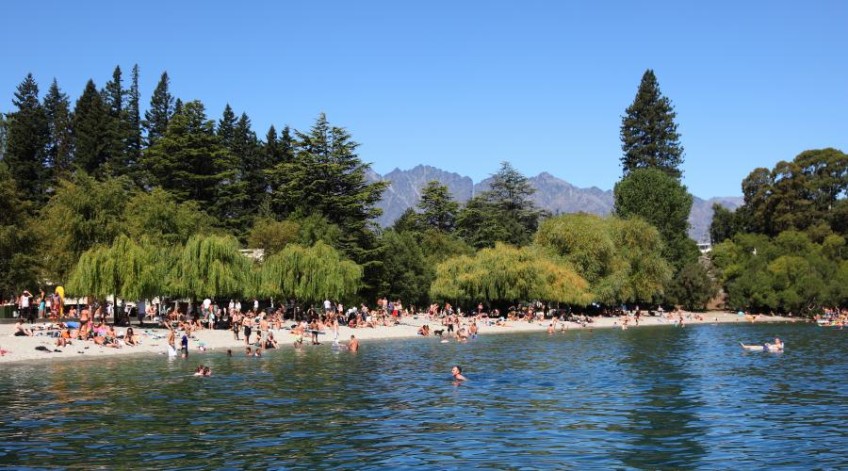Queenstown tourism support falls from 80% to 20% on infrastructure issues

Community support for tourism in Queenstown has fallen from about 80 to 20 per cent as the tourism hot-spot grapples with infrastructure issues alongside growing tourism numbers.
The University of Otago’s Tourism Policy School in Queenstown today, Executive Chair and CEO of the Remarkables Park Group, Alastair Porter, told delegates he expects tourism will be New Zealand’s highest export earner in future and supports the Government’s ambitious tourism growth goals.
However, Mr Porter says a key part of New Zealand’s appeal is the friendliness of New Zealanders towards visitors. To retain that, he stressed community needs must be a high priority.
“We have to have the infrastructure in place to ensure that the community doesn’t feel that tourism is imposing on them. This is particularly important in Queenstown, in part because one in three international visitors who come to New Zealand come to Queenstown.”
Manager of Mackenzie Tourism Lydia Stoddart spoke of similar issues in the Mackenzie District.
“The community values and supports tourism, but wants to address the adverse impacts,” Ms Stoddart says.
A recent survey carried out by Mackenzie Tourism reveals the community very much values and supports growth in tourism. But, like the Queenstown community, overall support for tourism has declined because of significant concerns about some of the impacts of tourism.
The tourism sector itself in the Mackenzie District is well embedded in the local community and Ms Stoddart says the survey shows tourism operators share similar concerns to the community.
“We are on board for the growth agenda, but it needs to be considered and have a targeted approach; there are times of the year we could actually take more tourists, but it needs to be a more targeted approach.”
Tourism Minister Louise Upston told delegates at the Tourism Policy School today that she was not joking when she says she wants tourism to be the “number one export earner”.
“But if we keep doing things as we have done in the past, there’s no way we are going to get there.”
There are a number of factors that, she says, need to be addressed from national branding and destination plans to health and safety systems.
“Job number one is getting more visitors and getting us back to the numbers we had in 2019.”
However, the Minister acknowledged the tourism sector needs to work with local communities.
“We need to ensure that we take the local communities with us.”
Tourism industry, government and research leaders have gathered at the Otago Tourism Policy School in Queenstown over the next two days to problem solve the pressing concern of effectively resourcing New Zealand’s tourism system.
Demand from key tourism stakeholders to attend this year’s forum, organised by the University of Otago – Ōtākou Whakaihu Waka’s Department of Tourism, is the highest since the annual event began seven years ago.
Over two days, tourism stakeholders and high-level tourism and conservation policymakers will discuss timely issues, including resourcing tourism on conservation land, private-public partnerships, user-pays models, and what New Zealand can learn from overseas tourism systems.
School Co-Director Associate Professor Susan Houge Mackenzie says the current system is insufficiently resourced, and regional tourism organisations want to see national leadership to help enable regional destination management plans and initiatives.

























